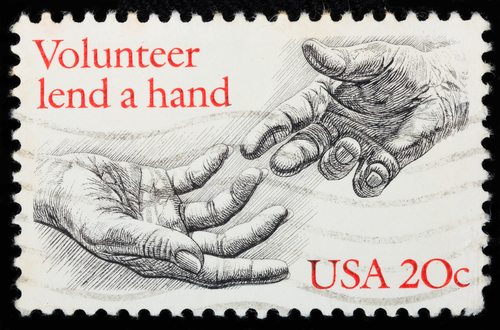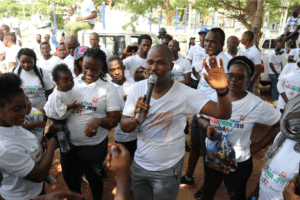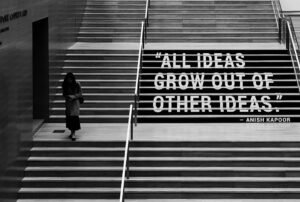
VOICES FROM THE FIELD
Tragedies impact our lives like nothing else. They are more potent than birthday parties, more emotional than weddings, more memorable than a honeymoon. A great loss can change a person, sending them into a spiral of grief and despair, or inspire them to take charge, to use misery from the past to give others hope in the present.
I’ve had my fair share of ups and downs in life, but nothing like the trauma my good friend Jodi O’Donnell-Ames experienced. She founded the nonprofit Hope Loves Company after losing her first husband, Kevin O’Donnell, to Amyotrophic Lateral Sclerosis (better known as ALS, or Lou Gehrig’s Disease). ALS is a degenerative nerve disease. Patients gradually experience muscle weakness, loss of voluntary motor control, paralysis, and eventually the inability to speak or breathe. The prognosis for time to live can range from several months to a few years.
Cancer research charities are closest to my heart. I’ve had friends, family, and teachers affected by the disease in one form or another, and my grandmother is currently fighting. I know from this experience that giving to organizations like the American Cancer Society and participating in events like Relay for Life is not only a way for me to help those suffering from this prolific disease, but to also help myself turn the pain and angst into something productive.
I’ve often found this to be the case—that tragedies and sorrows in life require positive action to heal properly. This has certainly been Jodi’s mindset over the years since her husband died. She told me once that the misery didn’t fade away until she put her energy toward some meaningful, creative capacity, interacting with others for the betterment of a cause. Hope loves company, she said. Misery improves nothing.
Sign up for our free newsletters
Subscribe to NPQ's newsletters to have our top stories delivered directly to your inbox.
By signing up, you agree to our privacy policy and terms of use, and to receive messages from NPQ and our partners.
I feel that this simple statement is at the heart of why we volunteer our time, energy, and money so freely to the worthy causes in our lives. It’s not so much that we’re trying to make a difference (though this is of course part of the equation) or that we feel obligated to give back. Rather, it is to engage in an act of healing so profound that it affects the giver just as much as the one receiving the gift.
This isn’t to say that charity is purely a selfish endeavor; anyone who is truly passionate about a cause can tell you it’s not. But self-interest does have a hand to play, though perhaps an unconscious, instinctive one. Hope is a consequence of giving, as opposed to a goal. We give because we see a need in the world, and we continue to give because filling that need fills a related need inside of us.
Volunteer work is as much about receiving as it is giving, and leaders who understand this are often the leaders doing the best work. Leaders can inspire their followers through personal fulfillment, which can be accomplished most effectively through direct engagement. Fundraising events are a great example. Activities and performances create a social space where like-minded people can congregate and share their stories while simultaneously doing something about their shared concerns, working together to create a world where such problems no longer influence our lives. This is where I feel mail campaigns go wrong. A letter is easy to dispose of, but human beings aren’t likely to throw away companionship based on mutual hope anytime soon.
Meaningful action can come in a variety of different forms, through both direct involvement and behind-the-scenes work. Volunteers can act as caregivers for patients or servers at a soup kitchen; they can answer telephones for a hotline or manage a fundraiser. All are valid options. What matters is that the volunteer finds a niche that is important to them, something that can give them a strong sense of purpose. Healing will follow.
Hope Loves Company is a unique organization because it targets the children of ALS patients rather than the patients themselves. It recognizes that suffering isn’t always direct, that the pain of others can have a profound impact on our own wellbeing. When members of an organization work to take care of each other and those around them, hope spreads. With the spread of hope comes the renewal of effort, a rebirth of faith in the future, and it is this mentality that allows progress to continue. If we believe a cure can be found, if we believe that pain can end, perhaps one day it will.
For me, this is the true benefit of charity. It’s not about the money, or raising awareness, or doing good. These are important, of course, but without hope, they all eventually fail. What endures is the understanding that it takes action to make something broken whole again, whether in yourself or in the world as a whole. Money alone cannot cure cancer, or ALS, or hunger. Only visionaries with hope in the future can accomplish these goals. It’s our job as philanthropists to nurture that hope and, in the process, rekindle our own sense of purpose and meaning in life.
Austin DeMarco is a freelance writer and editor in the Philadelphia, Pa. area.









